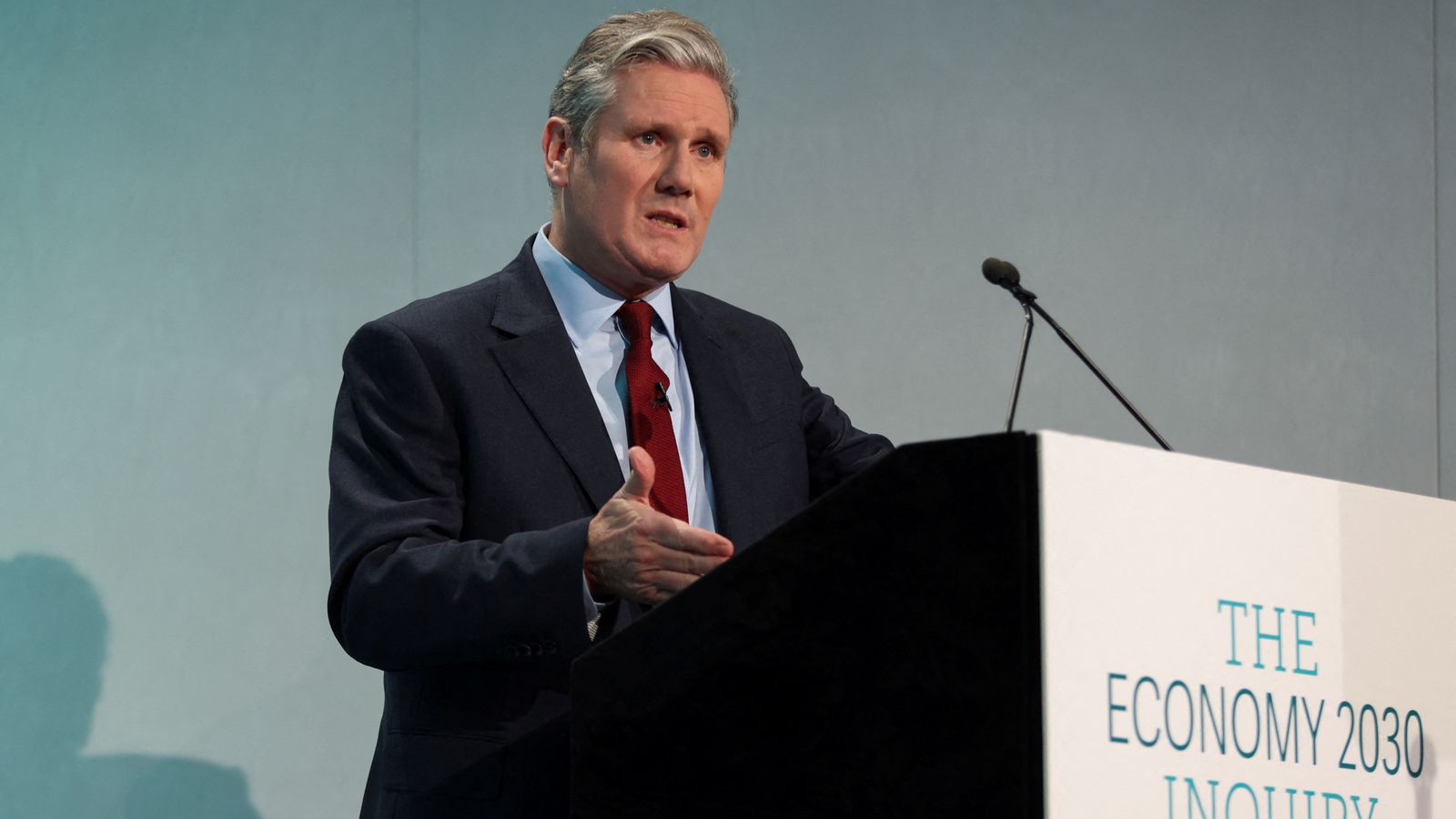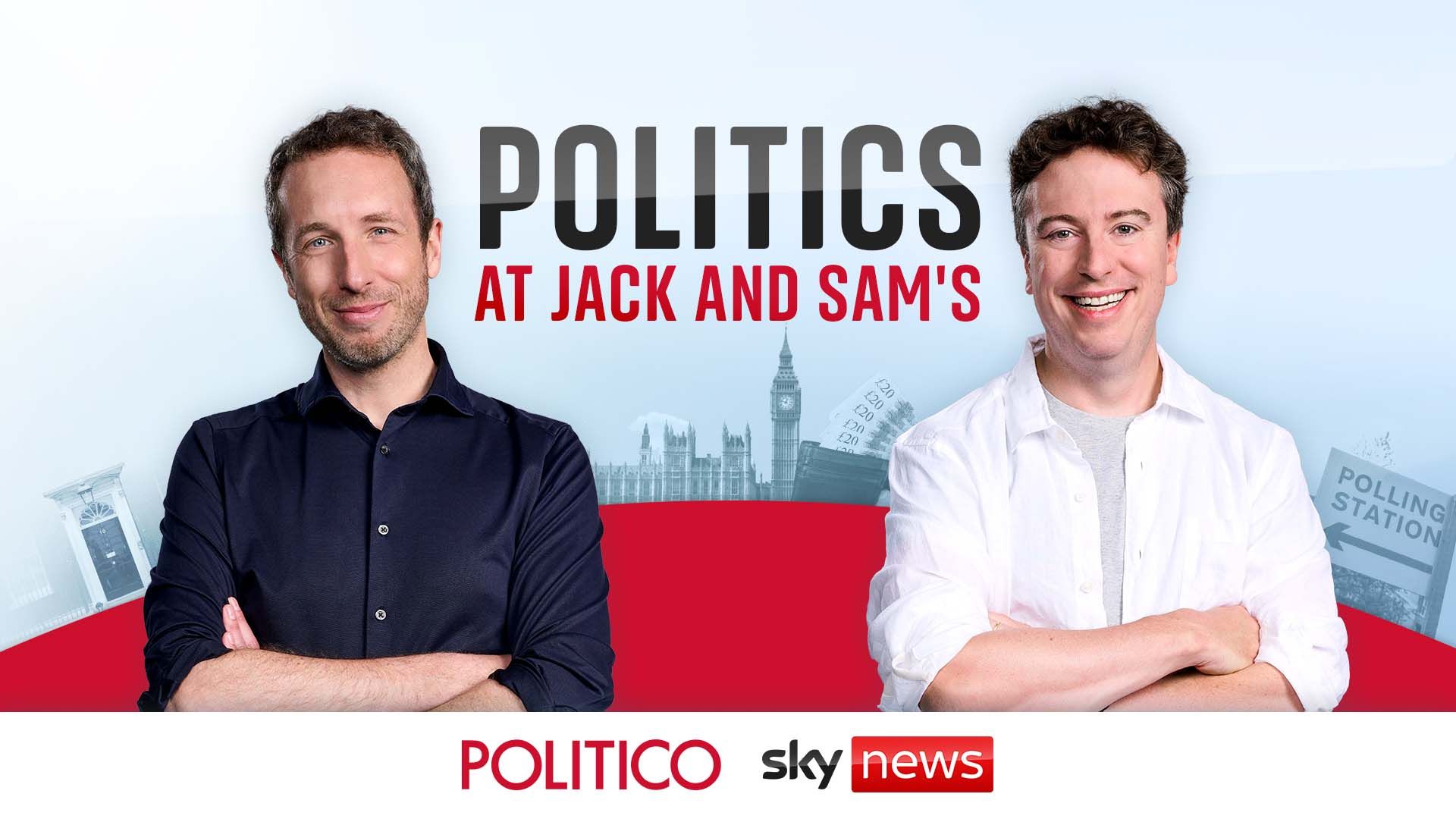For years we’ve all been hearing from Sir Keir Starmer about how our public services are on their knees and things need to change.
Now what we are hearing is that an incoming Labour government isn’t going to be able to do much to fix it – in the short term at least.
In a speech today Sir Keir Starmer stressed the fiscal situation an incoming Labour government will inherit from the Conservatives is worse than what was served up to the David Cameron government in the austerity years.
Follow live: Cleverly ‘knew he had to look tough’ as he set out immigration plan
“Compared with 2010, now debt is much higher, interest rates are much higher, growth is stagnant, Britain’s standing diminished,” Sir Keir told his audience at the Resolution Foundation event. “Public services on their knees, inflationary pressure, serious. Taxes higher than any time since the war.”
Laying it on thick when it came to the economic outlook, it was sort of inevitable that he dodged the question when I asked him if he could at least commit to not cutting public service spending further after the next election. And all of it left me asking myself the question: Vote Labour, get Tory austerity?
That’s because the nod to Margaret Thatcher over the weekend, coupled with his warnings over the economy, made the Labour leader, who was once thought to be the heir of Jeremy Corbyn or perhaps Tony Blair, now looking distinctly like a David Cameron/George Osborne tribute act.
Starmer says he is not in ‘business’ of spending cuts – but does not explicitly rule them out
Starmer tries to woo Tory voters but is it worth riling up Labour’s left-wing?
Why does Sir Keir Starmer not support a ceasefire in Gaza?
Please use Chrome browser for a more accessible video player
If his reference to the vision of Thatcher provoked a backlash from Labour supporters, his refusal to at least commit to investing in public services – beyond the modest sums Labour have found for the NHS and schools, by closing the non-dom tax status and charging VAT on private schools – is likely to leave many in despair.
Talk to those around the Labour leader and they say the comparison isn’t fair. Starmer, they argue, isn’t making a political argument to “shrink the state” and “hollow out public services” as George Osborne did in 2010, but rather Starmer and his shadow chancellor Rachel Reeves are acting out of “economic necessity”.
“There’s been no growth and debt has gone up,” says one key Labour figure. “Spending levels of the past are not possible. Labour used to talk about how to cut up the pie in a fairer way, but there are no pies left and the oven is broken. Growing the economy is top priority.”
Read more:
Starmer is wooing Tory voters but riling up the Labour left
Boris Johnson’s sister accuses COVID inquiry of ‘scapegoating’
For those who see public services on their knees, the failure of commitment to investment will perhaps come as a blow. Labour countenance that, with the highest tax burden in 70 years, taxing more is not the solution. Instead, Starmer and his allies hope that investment into the UK economy will be “swift” and within the first term Labour will be able to begin investing again in public services.
If it all sounds gloomy, it’s because it is. While the last Labour team under Corbyn promised billions of public spending, this team, with the COVID debt pile in its rearview mirror, are promising us not much at all beyond having more defined “missions” and being prepared to reform the planning system or the NHS.
Sky News Monday to Thursday at 7pm. Watch live on Sky channel 501, Freeview 233, Virgin 602, the Sky News website and app or YouTube.
When you are already 20-plus points ahead in the polls, you perhaps don’t need to make many promises, particularly when the Conservatives are already hammering Labour on its one big-ticket spending item – borrowing up to £28bn a year by the end of this parliament to invest in green infrastructure, which they claim will only serve to push up tax and debt.
Labour insiders tell me that Starmer and Reeves will set out their plans for public spending after the budget when we are closer to an election. But if the Labour leader decides to mimic what Brown and Blair did in 1997 and stick to Conservative spending plans, prepare for further public spending cuts. The jury’s still out on whether Starmer will really do that – but he’s certainly rolling the pitch for that option.








